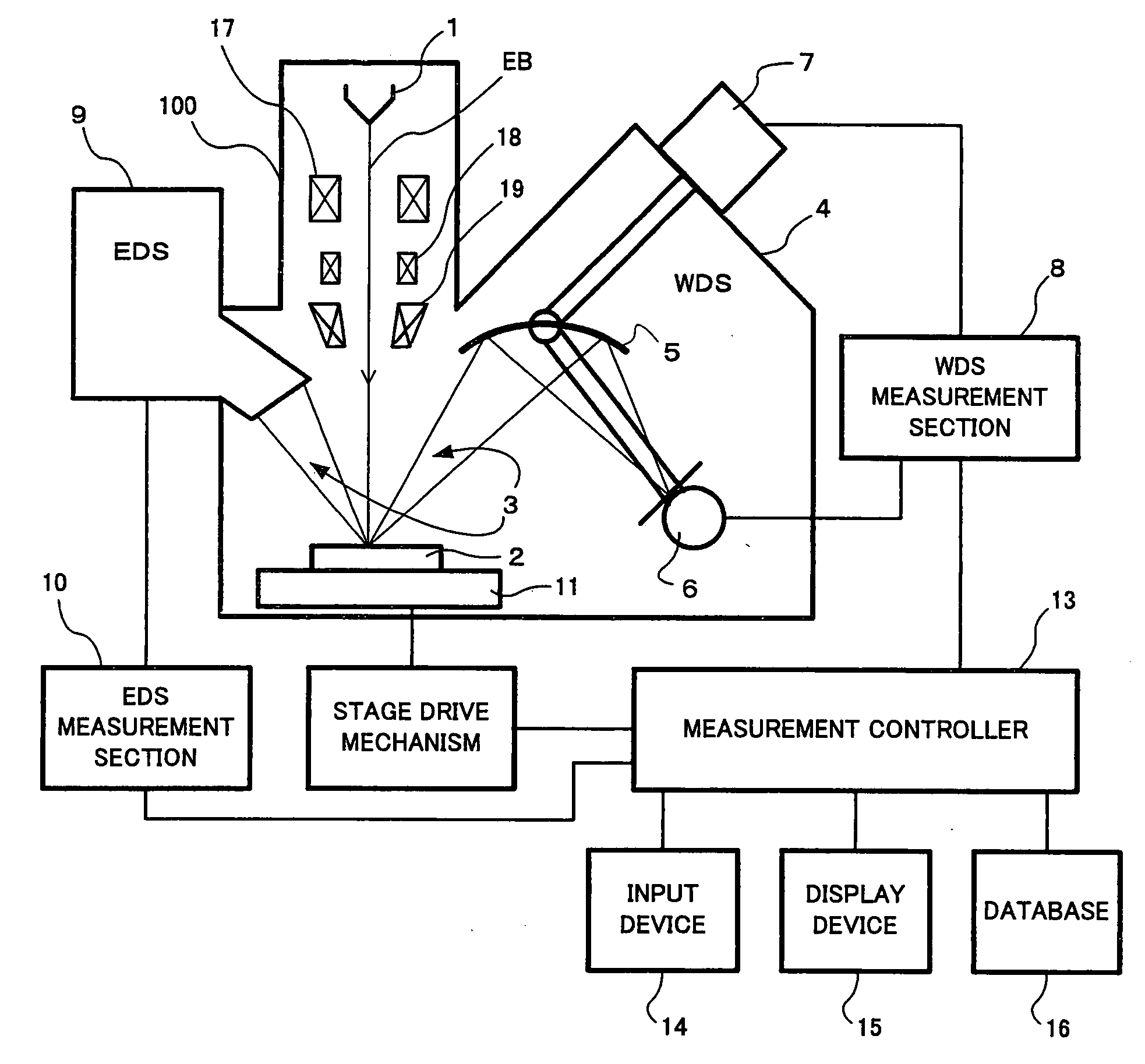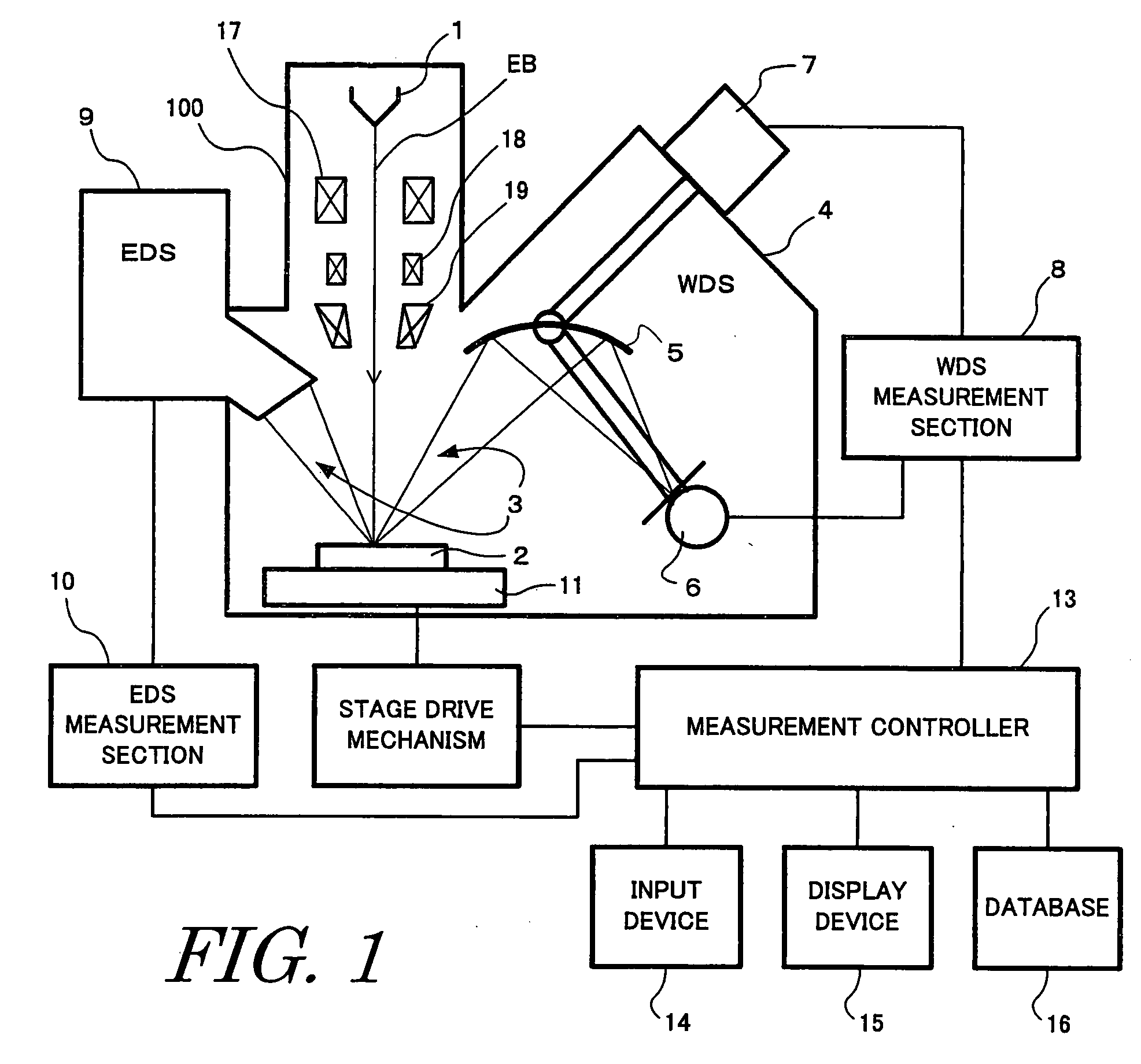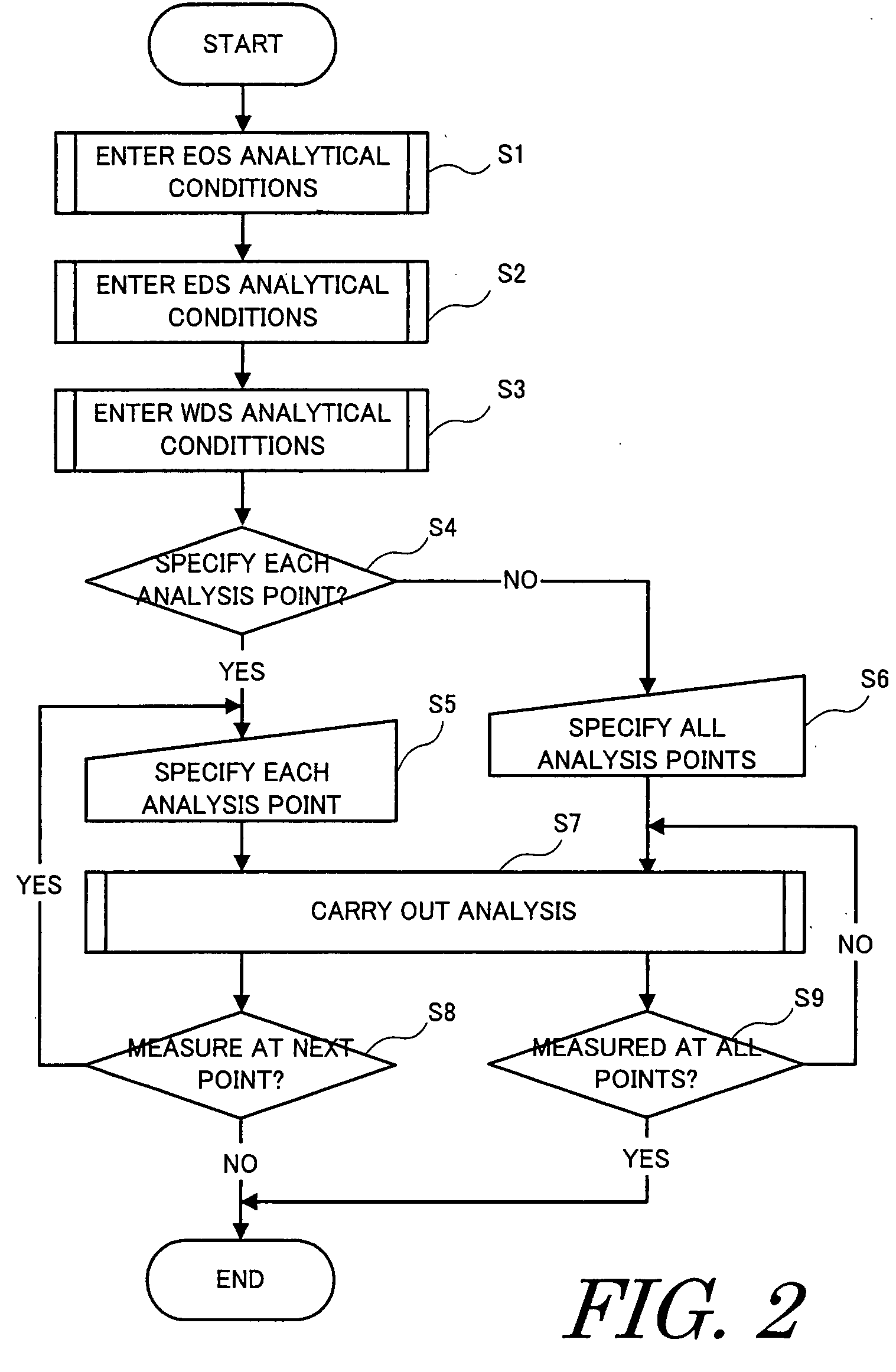X-ray analyzer using electron beam
a technology of electron beam and x-ray analyzer, which is applied in the direction of material analysis by measuring secondary emission, instruments, nuclear engineering, etc., can solve the problem that the efficiency of only a certain x-ray detection cannot be enhanced, and the energy resolution of wds is inferior to the wavelength resolution of wds, so as to achieve the effect of enhancing the efficiency of only a certain x-ray
- Summary
- Abstract
- Description
- Claims
- Application Information
AI Technical Summary
Benefits of technology
Problems solved by technology
Method used
Image
Examples
Embodiment Construction
[0032]Embodiments of the present invention are hereinafter described with reference to the accompanying drawings.
[0033]FIG. 1 schematically shows an electron probe microanalyzer (EPMA) for embodying the present invention. The microanalyzer has a microscope column 100 within which an electron gun 1 emitting an electron beam EB is disposed. The beam EB is sharply focused by condenser lenses 17 and an objective lens 19 and is directed at a sample 2. A scanning coil 18 scans the beam in two dimensions, and can vary the beam position on the sample. X-rays 3 produced from the sample 2 are spectrally analyzed and detected by a wavelength-dispersive spectrometer (WDS) 4 and an energy-dispersive spectrometer (EDS) 9. The WDS 4 includes an analyzing crystal 5, a detector 6, and a WDS drive mechanism 7. The WDS 4 is controlled via a WDS measurement section 8. Also, signals are accepted from the WDS 4 via the WDS measurement section 8. In order to mount plural wavelength-dispersive spectrometer...
PUM
 Login to View More
Login to View More Abstract
Description
Claims
Application Information
 Login to View More
Login to View More - R&D
- Intellectual Property
- Life Sciences
- Materials
- Tech Scout
- Unparalleled Data Quality
- Higher Quality Content
- 60% Fewer Hallucinations
Browse by: Latest US Patents, China's latest patents, Technical Efficacy Thesaurus, Application Domain, Technology Topic, Popular Technical Reports.
© 2025 PatSnap. All rights reserved.Legal|Privacy policy|Modern Slavery Act Transparency Statement|Sitemap|About US| Contact US: help@patsnap.com



